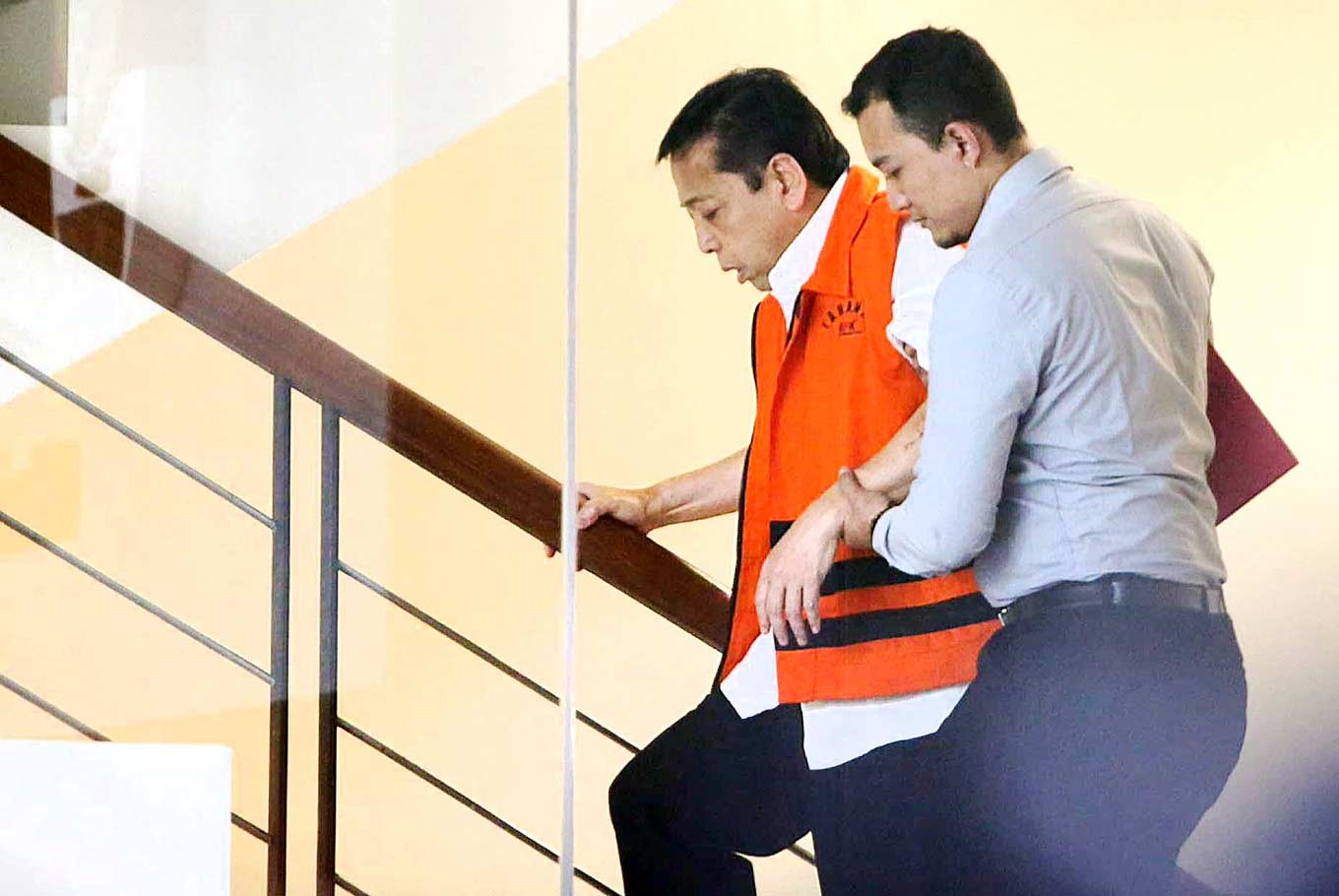Popular Reads
Top Results
Can't find what you're looking for?
View all search resultsPopular Reads
Top Results
Can't find what you're looking for?
View all search resultsCredible elections
As long as corruption remains rampant, state institutions, including the KPU, should serve as role models in providing no room for graft. Elections should produce lawmakers who fight for people’s aspirations rather than narrow personal or factional interests.
Change text size
Gift Premium Articles
to Anyone

The Supreme Court recently annulled two provisions in two General Elections Commission (KPU) regulations on eligibility requirements for legislative candidates for next year, effectively creating a five-year waiting period for all former convicts whose crimes are punishable by a minimum sentence of five years.
The KPU has no option but to comply with the ruling or it will be accused of disrespecting the rule of law. As the commission is currently vetting the registered legislative candidates, the court ruling should serve as a guideline to disqualify former graft convicts who are eyeing a comeback in politics less than five years after their release from prison.
At least one political party has already removed the candidates in its ranks whom the new standard prohibits. Other parties should follow suit, or the KPU should do the job for them.
Indonesia Corruption Watch (ICW) has found that at least 39 former graft convicts are on the KPU’s provisional list of legislative candidates, which was released in mid-August. Some political parties reportedly nominated the figures for their electoral prospects, saying they remained very popular despite their tainted records.
The provisions revoked by the Supreme Court had allowed convicts whose right to run for public office had been temporarily stripped by the court to register as candidates once their political rights had been reinstated. They were not required to wait five years after their release from prison before signing up as legislative candidates.
The KPU issued the two regulations in April of this year despite the fact that the provisions contradicted the 2017 Elections Law and two Constitutional Court rulings in 2022 and 2023, all of which stipulated that the five-year waiting period was applicable to all convicts without exception.

In its recent ruling, the Supreme Court ordered the KPU to remove the controversial provisions in question, holding that election organizers should screen candidates for integrity by imposing strict requirements.
The revoked provisions did not specifically mention former corruption convicts, but the fact that the Supreme Court justices and the petitioners both singled out former graft convicts in their judicial opinion and petition, respectively, reflects growing concern about corruption.
The three-member bench described the KPU provisions as “lacking commitment to eradicating corruption”. It held that imposing the universal five-year waiting period was necessary “to deter corruption” and provide “sufficient time for all former graft convicts to reflect on their mistakes”.
The petition for judicial review was filed by the Association for Elections and Democracy (Perludem), the ICW and two former KPK commissioners, who all feared that the provisions would make it easier for ex-graft convicts to run for office.
As long as corruption remains rampant, state institutions, including the KPU, should serve as role models in providing no room for graft. Elections should produce lawmakers who fight for people’s aspirations rather than narrow personal or factional interests.
Hundreds of legislators at the national and regional levels have been convicted of graft. We have even seen a House speaker found guilty of corruption.
The impact of legislative corruption is far-reaching. First and foremost, it deeply undercuts public trust in the legislature. As a consequence, faith in political parties, politics and democracy are adversely affected, causing the fruits of the 1998 reform movement to wither.
An Indonesian Political Indicator survey on public opinion of government performance in June 2022 found that political parties were the least trusted among the nine institutions polled, with the House ranking second from the bottom. The poor performance had been unchanged since 2014, according to the pollster.
The findings are worrying, if not alarming, considering that political parties and the legislature play such an important role in the government. Corruption committed by lawmakers will render the public increasingly apathetic toward politics.
Politics should be filled with people with integrity. If the reality is simply the opposite, the accusation that politics is a dirty affair will find justification. The rampant corruption involving lawmakers will only confirm the public’s negative perception of the system.
For the sake of credible elections, we should make sure that only people with integrity can run for public office.










